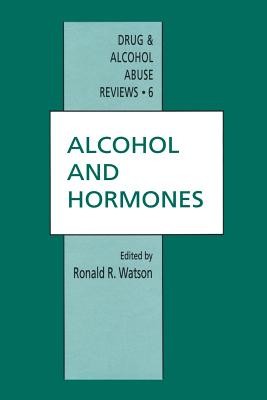
- We will send in 10–14 business days.
- Author: Ronald R Watson
- Publisher: Humana
- Year: 2012
- Pages: 339
- ISBN-10: 1461266785
- ISBN-13: 9781461266785
- Format: 15.2 x 22.9 x 1.9 cm, softcover
- Language: English
- SAVE -10% with code: EXTRA
Reviews
Description
Alcoholism, the oldest addictive illness, remains a serious problem because of its major modifications of many physiological systems. The genetic and neurological origins and mechanisms are complex and only partly understood. However, it is clear that alcohol use modifies the production of most hormones, directly and indirectly modulating the systems that hormones regulate. Acute and chronic alcohol consumption affects virtually all cellular functions of tissues like brain, liver, immune system, and reproductive and endocrine organs. The latter have major regula- tory roles, affecting many functions from development to repro- duction. Although stress can further modify alcohol's effects on hormone production, it significantly causes most of alcohol's modi- fications of the body to occur via changes in hormone production and secretion. Ronald R. Watson vii Contributors Michael L. Adams - Department of Psychiatry, Washington University School of Medicine, St. Louis, MO Robert A. Anderson, Jr .- Ob/Gyn Research, Rush-Presbyterian-St. Luke's Medical Center, Chicago, IL Kasibhatla Bhavani - Molecular Heptology Laboratory, Massachusetts General Hospital Cancer Center, Harvard Medical School, Charlestown, MA Theodore J. Cicero - Department of Psychiatry, Washington University School of Medicine, St.
EXTRA 10 % discount with code: EXTRA
The promotion ends in 20d.18:40:52
The discount code is valid when purchasing from 10 €. Discounts do not stack.
- Author: Ronald R Watson
- Publisher: Humana
- Year: 2012
- Pages: 339
- ISBN-10: 1461266785
- ISBN-13: 9781461266785
- Format: 15.2 x 22.9 x 1.9 cm, softcover
- Language: English English
Alcoholism, the oldest addictive illness, remains a serious problem because of its major modifications of many physiological systems. The genetic and neurological origins and mechanisms are complex and only partly understood. However, it is clear that alcohol use modifies the production of most hormones, directly and indirectly modulating the systems that hormones regulate. Acute and chronic alcohol consumption affects virtually all cellular functions of tissues like brain, liver, immune system, and reproductive and endocrine organs. The latter have major regula- tory roles, affecting many functions from development to repro- duction. Although stress can further modify alcohol's effects on hormone production, it significantly causes most of alcohol's modi- fications of the body to occur via changes in hormone production and secretion. Ronald R. Watson vii Contributors Michael L. Adams - Department of Psychiatry, Washington University School of Medicine, St. Louis, MO Robert A. Anderson, Jr .- Ob/Gyn Research, Rush-Presbyterian-St. Luke's Medical Center, Chicago, IL Kasibhatla Bhavani - Molecular Heptology Laboratory, Massachusetts General Hospital Cancer Center, Harvard Medical School, Charlestown, MA Theodore J. Cicero - Department of Psychiatry, Washington University School of Medicine, St.


Reviews